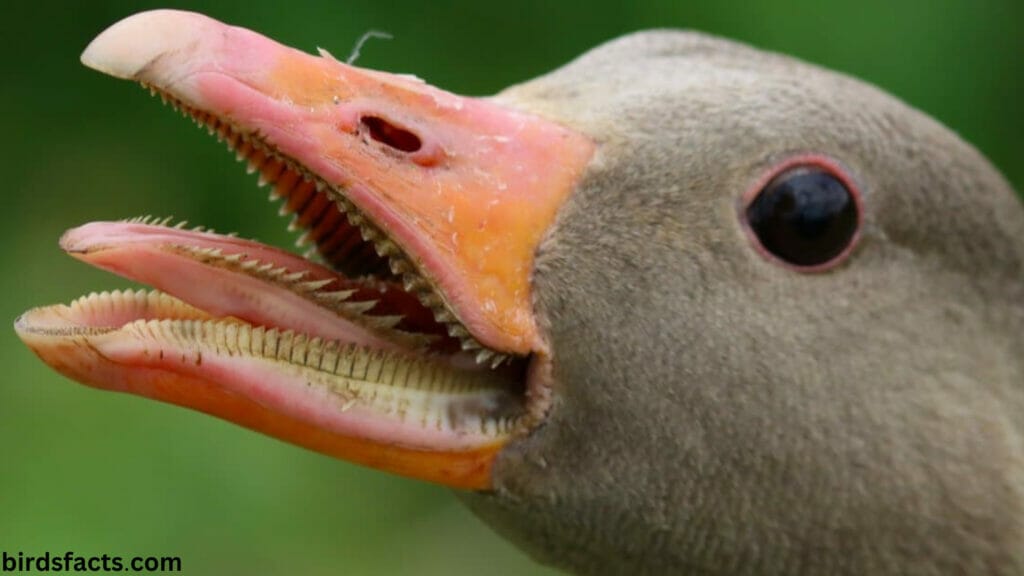Introduction
Have you ever wondered if ducks have teeth? It’s a surprisingly common question, and the answer may surprise you. In this blog post, we will explore the anatomy of ducks to uncover the truth about their dental health. So, keep reading to discover the answer to the age-old question: do ducks have teeth?

Do Ducks Have Teeth
Overview of Duck Anatomy
When it comes to duck anatomy, the most noticeable feature is their bill. Ducks have distinct bills that help them to scoop up food from the water, and they can change the shape of their bills to filter food from the mud. Ducks also have webbed feet, which provide them with excellent propulsion when swimming. In addition to these features, ducks also have a unique set of feathers, which are arranged in such a way that helps them remain afloat on the water.
But do ducks have teeth? The answer is no. While ducks don’t have teeth, their bills are quite hard and are often used to crush or break apart food. Ducks also have a gizzard, which is a muscular organ located in their stomach. The gizzard helps to grind up food, which helps them digest it better.
In addition to the bill and gizzard, ducks also have a number of other specialized organs that help them survive in the wild. For example, they have a crop, which is an organ that helps to store food before it is passed through the digestive system. Ducks also have a cloaca, which is an opening at the base of their tail feathers that is used to release waste.
Now that you know a bit more about duck anatomy, you may be wondering what other adaptations these animals have. Ducks are excellent at flying and can travel for miles in search of food. They also have amazing eyesight, which helps them to spot predators from a distance. Finally, ducks are social animals and often form large groups when looking for food or migrating.
Overall, duck anatomy is quite fascinating and there are many features that make these animals so unique. From their hard bills to their webbed feet, ducks are truly remarkable creatures. So the next time you spot one of these feathered friends, take a moment to marvel at their anatomy.

do ducks have teeth on their tongue
Duck Teeth
Ducks have very small, sharp “teeth” located at the base of their bill. These are called “papillae” or “basihyal teeth” and they are used for gripping and tearing their food. Ducks will typically use these teeth to break apart mollusks, crustaceans, and other invertebrates.
Despite their small size, duck teeth are surprisingly sharp and durable. This is due in part to the material that makes up the teeth. Ducks have a special “gular” layer of enamel that protects their teeth from wear and tear. This layer is made up of a mix of calcium phosphate, carbonate, and silica, making it tougher than human enamel.
Duck teeth also have a unique structure. Ducks have more teeth in the upper part of their bill, which helps them to firmly grip their food. The lower part of the bill contains fewer teeth, which helps them to both chew and swallow.

Duck Teeth
While ducks do possess teeth, they do not use them in the same way that humans do. Instead of using their teeth to chew, ducks use their beaks to rip apart their food. This is because their bill is not as flexible as our jaws and they are unable to open and close their beak to grind up their food.
Ducks also possess a unique set of muscles in their bill that help them to tear apart their food. This is a highly specialized adaptation that is unique to ducks, and it allows them to easily rip apart their prey.
The next time you see a duck, take a closer look at its bill and you may be able to spot its tiny teeth. While the teeth are not used in the same way as human teeth, they are an interesting adaptation that serves an important purpose in the duck’s diet.
Conclusion
In conclusion, ducks do not have any teeth. However, their beaks are specially adapted for their diet, which includes a variety of aquatic plants and animals. Ducks have unique bill structures and a hard, sharp edge that allows them to tear apart their food and to filter out small items from the water. Though they may not have teeth, ducks have the ability to collect food and digest it effectively.
Further Reading
You may also check out:
- fish with big forehead
- two birds on a wire lyrics
- why do birds suddenly appear
- three little birds sat on my window
- ipwnder v1.1
- japanese birds
- blue bird michigan
- birds behind glasses
- unlock tool crack
Thank you for reading!








